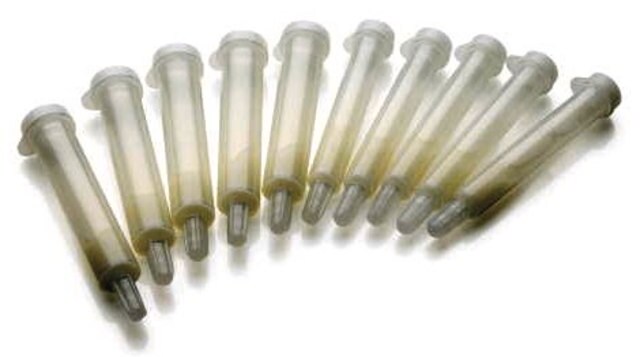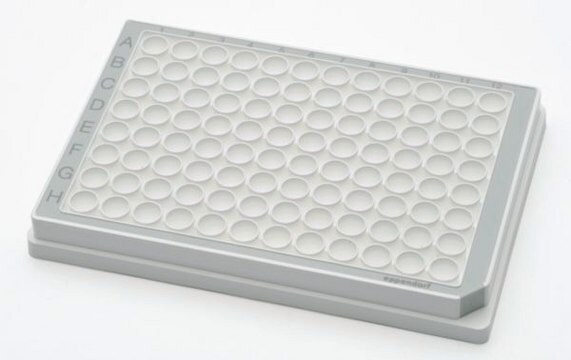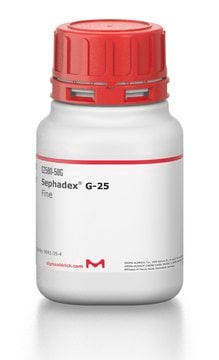GE17-0854-01
NAP™-10 20 ST
Cytiva 17-0854-01
Synonym(s):
NAP 10 Column
Sign Into View Organizational & Contract Pricing
Select a Size
All Photos(1)
Select a Size
Change View
About This Item
UNSPSC Code:
41105501
NACRES:
NA.52
Recommended Products
packaging
pkg of 20 columns
manufacturer/tradename
Cytiva 17-0854-01
storage condition
(.01 M NaOH)
particle size
20-80 μm (dry)
working range
2-13
capacity
<1 mL binding capacity
Related Categories
General description
Disposable columns prepacked with Sephadex® G-25 DNA Grade and require only gravity to run.
NAP™ Columns are disposable columns prepacked with Sephadex® G-25 DNA Grade and require only gravity to run. Each package includes a complete step-by-step protocol describing the fixed volumes needed for equilibration, washing and sample elution.
NAP™ Columns are disposable columns prepacked with Sephadex® G-25 DNA Grade and require only gravity to run. Each package includes a complete step-by-step protocol describing the fixed volumes needed for equilibration, washing and sample elution.
Features and Benefits
- For rapid and efficient purification of DNA and oligonucleotides (10-mers) in less than 15 min by gravity flow.
- Prepacked with Sephadex® G-25 DNA Grade in distilled water containing 0.15% Kathon CG/ICP Biocide.
- Available in three sizes depending on sample volume: 0.5 mL (NAP-5), 1 mL (NAP-10) or 2.5 mL (NAP-25).
- Useful for small-scale purification, desalting and buffer exchange.
Storage and Stability
Please be aware this product may be shipped 90 days before the expiration date. For more information on the batch specific expiration date, please contact technical service.
Store at 4 to 30 °C ()
Analysis Note
To view the Certificate of Analysis for this product, please visit www.cytiva.com.
Legal Information
NAP is a trademark of Cytiva
Sephadex is a registered trademark of Cytiva
related product
Product No.
Description
Pricing
signalword
Warning
hcodes
Storage Class
12 - Non Combustible Liquids
Choose from one of the most recent versions:
Certificates of Analysis (COA)
Lot/Batch Number
It looks like we've run into a problem, but you can still download Certificates of Analysis from our Documents section.
If you need assistance, please contact Customer Support.
Already Own This Product?
Find documentation for the products that you have recently purchased in the Document Library.
Customers Also Viewed
Protocols
Follow this DDT reduction protocol to reduce disulfide bonds in thiol-modified oligonucleotides.
Our team of scientists has experience in all areas of research including Life Science, Material Science, Chemical Synthesis, Chromatography, Analytical and many others.
Contact Technical Service












